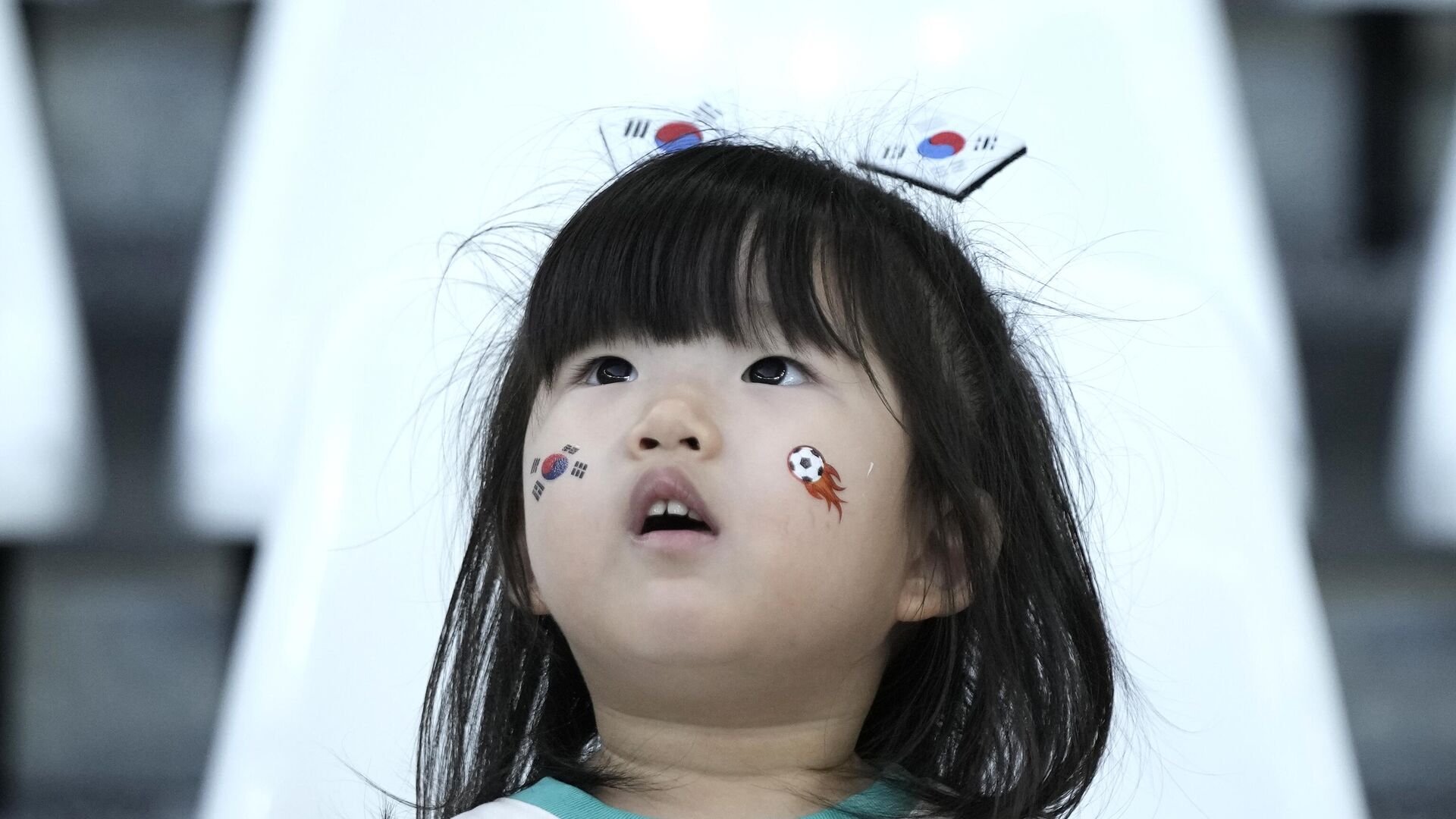https://sputnikglobe.com/20221209/south-koreans-will-get-younger-due-to-new-age-system-1105260600.html
South Koreans Will Get 'Younger' Due to New Age System
South Koreans Will Get 'Younger' Due to New Age System
Sputnik International
The way South Korea determines one's age is different from the one that is internationally recognized. When a baby is born, it is considered a year old, since... 09.12.2022, Sputnik International
2022-12-09T05:46+0000
2022-12-09T05:46+0000
2022-12-09T05:46+0000
world
south korea
age
calendar
seoul
pregnancy
https://cdn1.img.sputnikglobe.com/img/07e6/0c/07/1105131324_0:160:3072:1888_1920x0_80_0_0_835d48c34b11b8e55ddf358c92cb3234.jpg
Citizens of South Korea will get a year or even two years younger since the government plans to change its age-counting system, South Korean media report.The country's National Assembly passed a number of bills that require citizens to use internationally recognized age system, where age is counted from someone's birthdate. The change will take effect next summer.Korea's traditional system for determining age is different from the international one. Aside from counting nine months of pregnancy as one year of life, South Koreans get a year older with each New Year. So, a baby born December 30, 2020 would be two years old on January 1, 2021.According to the poll carried out by the Ministry of Government Legislation, more than 80% of South Koreans expressed support for adjusting the age-counting system to match international standards. President Yoon Suk Yeol promised to do it as a part of his electoral campaign.This measure was supported by the South Korean Parliament.Historians do not have a clear explanation of the origins of Korea's calendar. One theory states that a year is added because of time spent in the womb. Nine months are rounded to a full year. Another possible explanation lies is the specifics of ancient Asian numerical systems that did not have a concept of zero.The answer to the question about a year being added each January 1 is also shrouded in mystery. On theory states that in the absence of regular calendars, ancient Koreans ignored their date of birth and simply added a year on the first day of the lunar calendar.
south korea
seoul
Sputnik International
feedback@sputniknews.com
+74956456601
MIA „Rossiya Segodnya“
2022
News
en_EN
Sputnik International
feedback@sputniknews.com
+74956456601
MIA „Rossiya Segodnya“
Sputnik International
feedback@sputniknews.com
+74956456601
MIA „Rossiya Segodnya“
how to calculate your age in korea, south korea, korean age, pregnancy, asian numerical system, lunar calendar
how to calculate your age in korea, south korea, korean age, pregnancy, asian numerical system, lunar calendar
South Koreans Will Get 'Younger' Due to New Age System
The way South Korea determines one's age is different from the one that is internationally recognized. When a baby is born, it is considered a year old, since the nine-month term of a woman's pregnancy is counted as a year.
Citizens of South Korea will get a year or even two years younger since the
government plans to change its age-counting system, South Korean media report.
The country's National Assembly passed a number of bills that require citizens to use internationally recognized age system, where age is counted from someone's birthdate. The change will take effect next summer.
Korea's traditional system for determining age is different from the international one. Aside from counting nine months of pregnancy as one year of life, South Koreans get a year older with each New Year. So, a baby born December 30, 2020 would be two years old on January 1, 2021.
According to the poll carried out by the Ministry of Government Legislation, more than 80% of South Koreans expressed support for adjusting the age-counting system to match international standards. President Yoon Suk Yeol promised to do it as a part of his electoral campaign.
This measure was supported by the South Korean Parliament.
“The revision is aimed at reducing unnecessary socio-economic costs because legal and social disputes as well as confusion persist due to the different ways of calculating age,” Yoo Sang-bum of the ruling People Power party claimed.
Historians do not have a clear explanation of the origins of
Korea's calendar. One theory states that a year is added because of
time spent in the womb. Nine months are rounded to a full year. Another possible explanation lies is the specifics of ancient Asian numerical systems that did not have a concept of zero.
The answer to the question about a year being added each January 1 is also shrouded in mystery. On theory states that in the absence of regular calendars, ancient Koreans ignored their date of birth and simply added a year on the first day of the lunar calendar.



